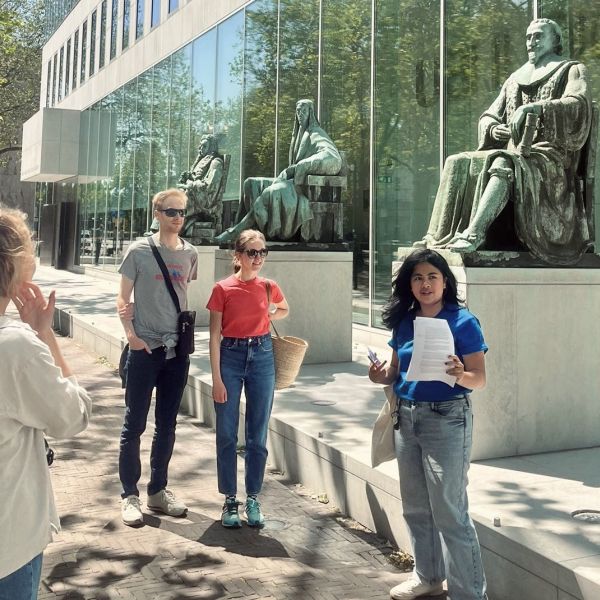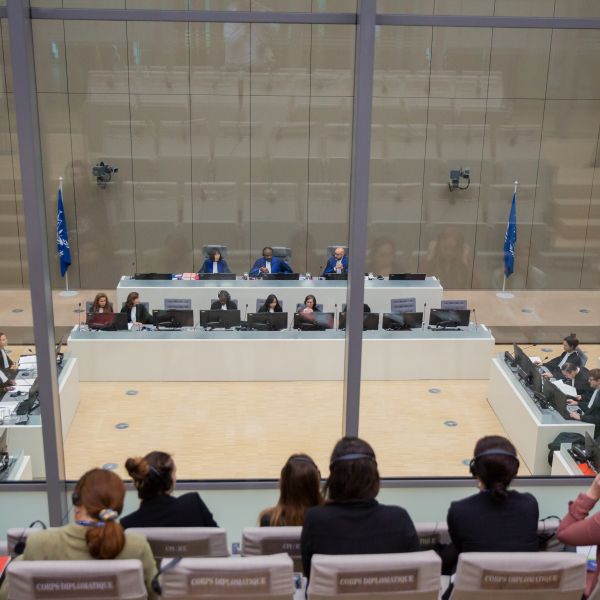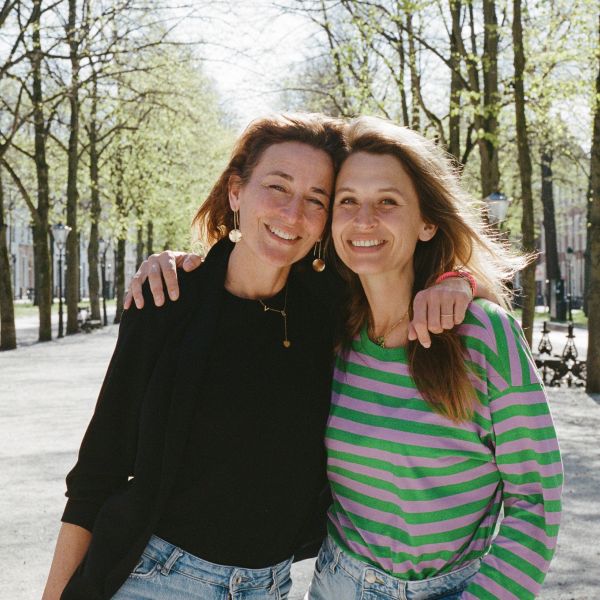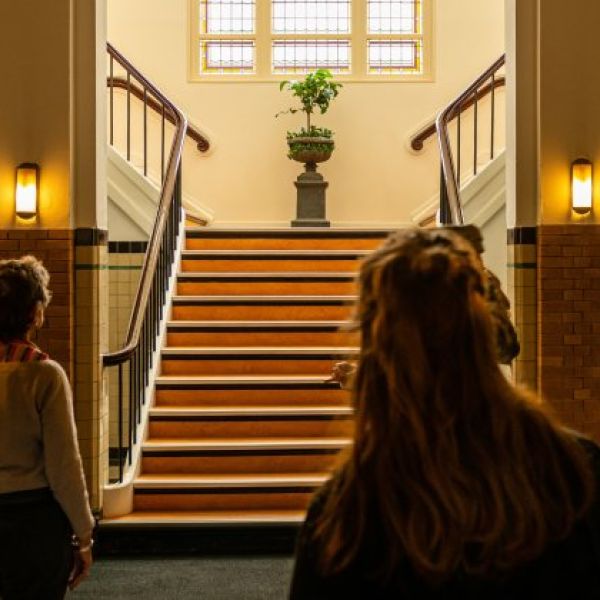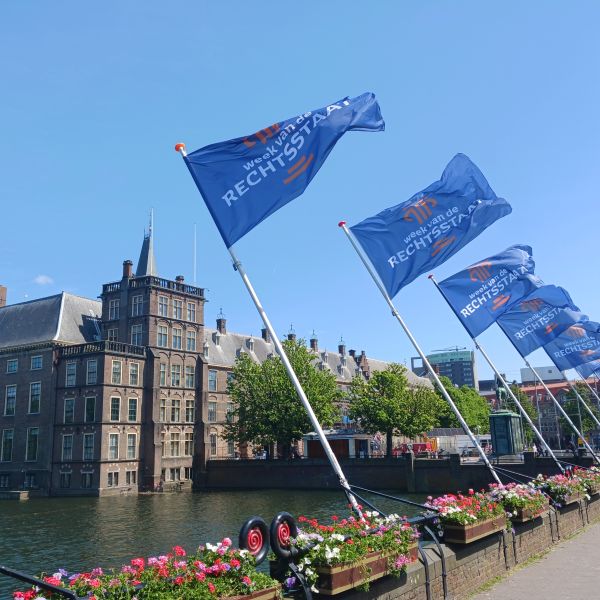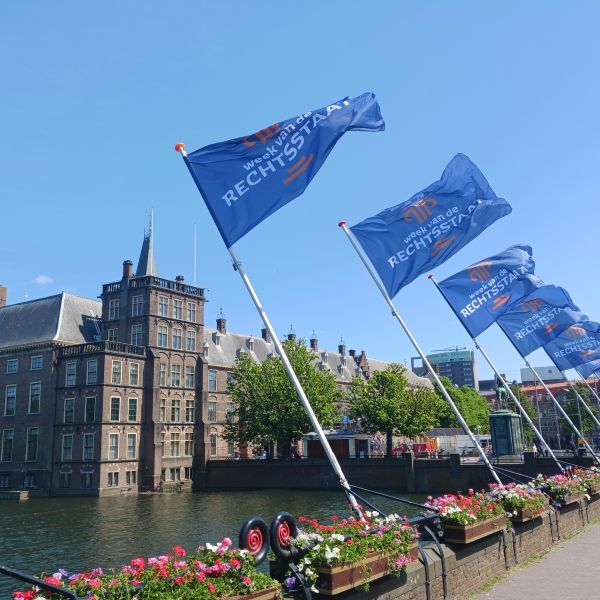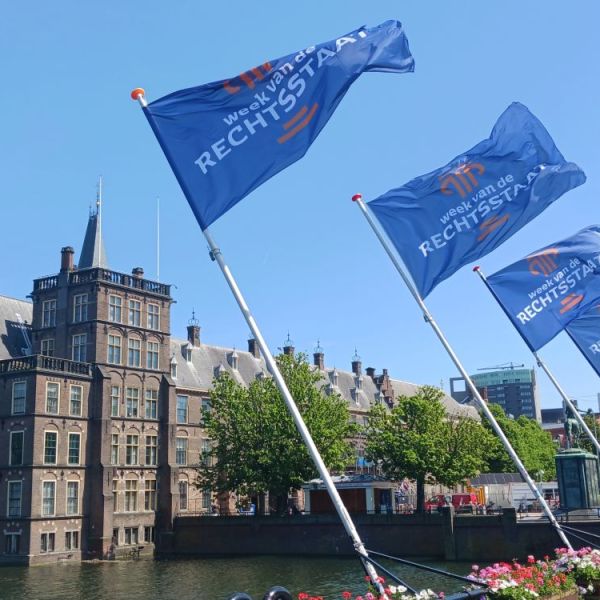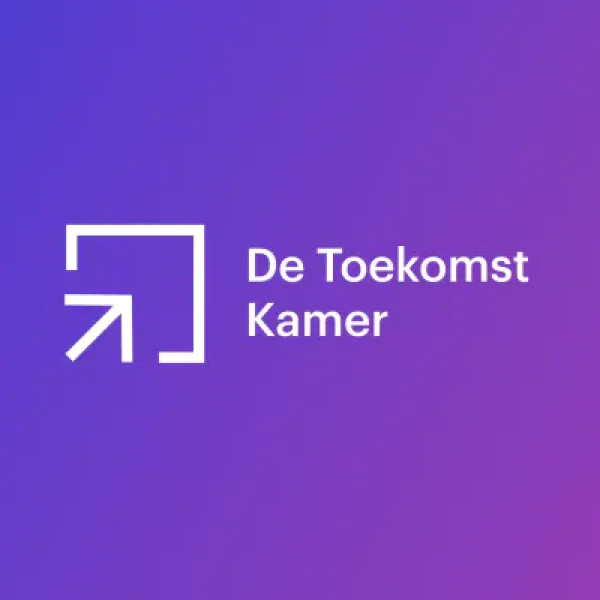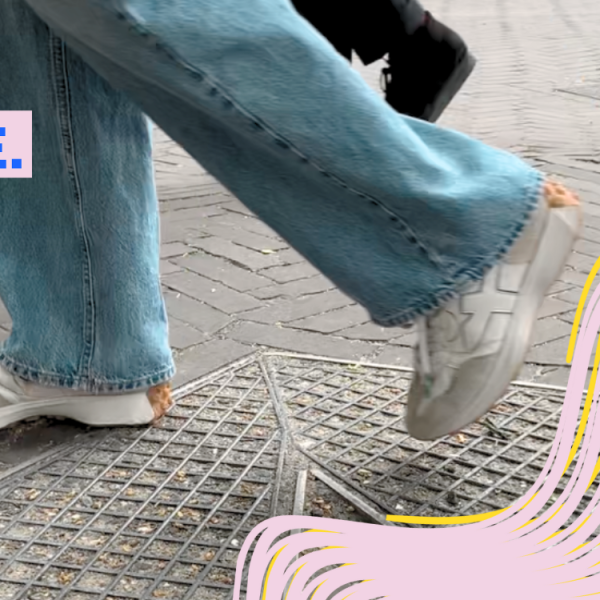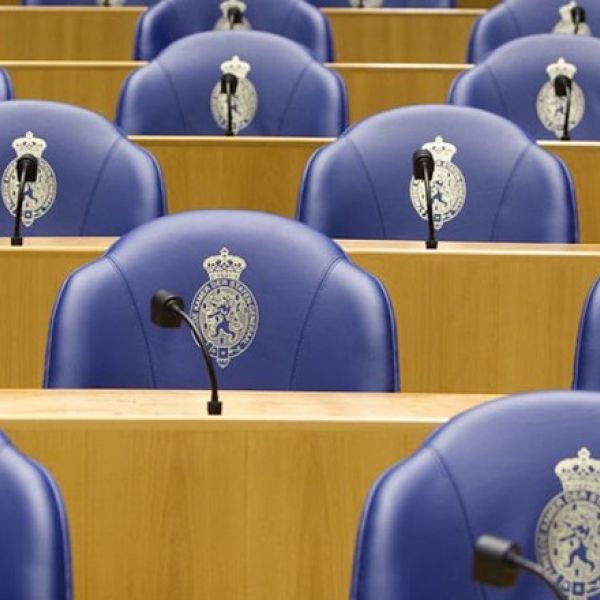Pieter-Bas Beekman has worked at the Council of State for more than 25 years: "We are the guardian of the democratic rule of law."
On the occasion of the Week of the Rule of Law and Hague Justice Week, we present from Just Peace a trio of stories in which we let different people speak. All working within different layers of our rule of law. The Hague is of course the legal capital and the international city of peace and justice, but what actually happens behind the walls of those buildings and what drives the people who work there? We kick off this series with Pieter-Bas Beekman, spokesman for the Council of State.
Photography & text Loretta Monique

Pieter-Bas has worked for the Council of State for more than 25 years. He once began his career with the state body as a lawyer and registrar. Where many of his fellow lawyers eventually became judges, Pieter-Bas changed tack and turned to communications. Since then, Pieter-Bas has been a spokesman at the Council of State. Here he combines the legal and the communicative: the place "where his heart lies," as he himself describes it.
But what exactly does the Council of State do, in what way can you as a citizen come into contact with the Council and what special moments in his career will Pieter-Bas never forget?
Let's start at the beginning: what exactly does the Council of State do?
"The Council of State has two main tasks. On the one hand, we are legislative advisors to the government and parliament. That means, simply put, that every bill that the government submits must first pass the Council of State before it can finally become a law. We are advisors, which means we only look at the quality of such newly proposed legislation. We are not a political body and therefore not in a position to say: this is not a politically desirable law.
On the other hand, we are also the highest administrative judge. That means we are judges of disputes between government and citizens. These disputes can be over a wide range of issues."
"Citizen against government can sometimes feel a little like little David against big Goliath after all."
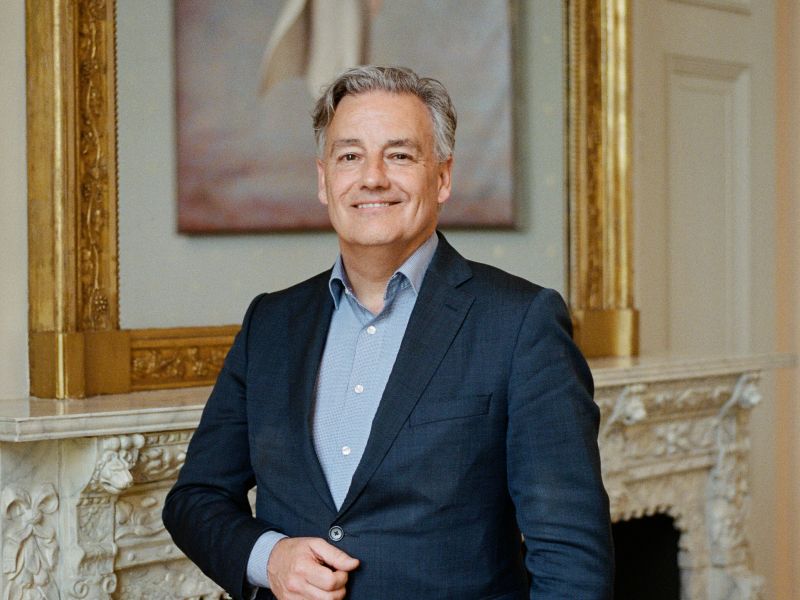
Does this mean a citizen can sue the state?
"Indictment is a criminal term. What we facilitate is just purely the right of a citizen. Every citizen in a democratic constitutional state has the right to go to court when he or she disagrees with a government decision. That is also the beauty of a democratic rule of law, where we facilitate all of this.
That means when a citizen thinks: "Very nice that my neighbor now has a building permit to build out his whole house, but I don't agree with that!", he can object and appeal against such a building permit. Similarly, the foreigner who comes to the Netherlands and is not granted asylum can appeal to the courts. And a journalist who does not receive information from a particular administrative body can try to demand that information through the Council. So everyone has the right to appeal a government decision to the courts. That way, as a citizen, you end up with the Council of State."
Will trials also be held in the State Council building?
"We have eight halls with large audience areas. The public is also just welcome at our court! We don't have a scanning street, as many other courts do. This is mainly because we don't hear criminal cases here, which makes the need for scanning a little less. Legal cases do sometimes arise that may pose a risk, and then we have the opportunity to set up a scanning street. Citizens against government can sometimes feel a bit like little David against big Goliath, which is why we think it's important that citizens feel welcome here. That includes making it easy for people to enter the building."
"You gain nothing from a rule of law if it is not democratically embedded, and you gain nothing from democracy if it is not secured in a rule of law."
What do you think is the importance of a body like the Council of State?
"We are the guardian of the democratic rule of law. That sounds very inspired, but I really mean it. It means that we want to preserve and strengthen the rule of law with our work. You cannot underestimate the value of a democratic constitutional state. Fortunately, we can elect our people's representatives and our government; that is democracy. The rule of law is everything that is enshrined in the constitution and ensures that every citizen has the opportunity to express himself freely. Think of all the classic fundamental rights: freedom of speech, freedom of movement, freedom of religion, and so on. You cannot separate the two; you cannot have a democracy without the rule of law and you cannot have a rule of law without democracy. You have no use for a rule of law if it is not democratically embedded, and you have no use for democracy if it is not secured in a rule of law. So with respect to our duties, we are very conscious of that.
As legislative counsel, we pay attention to the quality of legislation, but in our role as administrative judges, we also occasionally encounter less-than-perfect or complex legislation in our court cases. Our judge identifies this and can then feed it back to the legislature so that better legislation can be made. When the law improves, you as a judge can test more easily, citizens then know better where they stand, and that might eventually lead to fewer lawsuits. So there is a very clear circle in which our two tasks are inherently linked. That is the importance of the Council of State, to strengthen and guarantee the quality of legislation."
The Council of State is one of the oldest surviving state bodies in the world. How special is that and is there an explanation for that in your opinion?
"Yes, that is quite special of course. Founded in 1531 by Charles V, what organization in the Netherlands can emulate us? We are a high college of state, but that doesn't make us unique. The National Ombudsman, the Court of Audit, and the Senate and House of Representatives are also high colleges of state. That sounds very posh, but that has everything to do with the fact that we perform our tasks independently of parliament and government."
"The advisory board at that time consisted only of men and notables, totally not 'woke'"
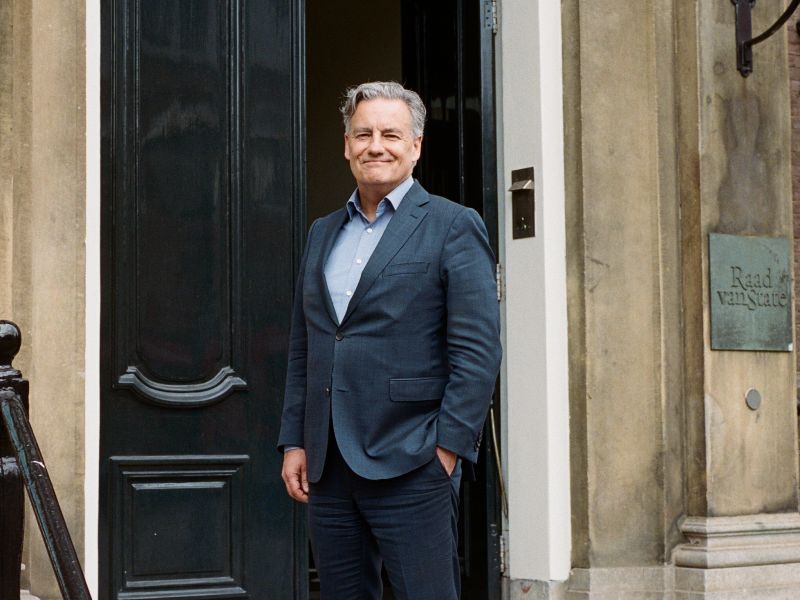
"You do have to realize that the tasks we have now do not quite correspond to the tasks for which we were established at the time. On the one hand, yes, because the Council of State was established at the time to serve as an advisory body to the then governess. That time is a bit past, though. Similarly, that advisory council at that time consisted only of men and notables, not at all woke as one would say now. It was established to keep the national government on its toes, which we still do today. So our current advisory branch still resembles that. For administrative justice as we know it today, you can't go back that far in time. That was not an issue at all in 1531, indeed that was actually not developed until the middle of last century."
You have worked for the Council of State for more than 25 years. Have there been any moments in your career that you won't soon forget?
"That I was exactly at the right time, in the right place. At the time, I was about to apply for a new job because I didn't want to continue hardcore legal work. Right then, I got the opportunity to co-found a communications department at the Council, which allowed me to combine the legal with the communicative. I was very lucky with that at the time.
Other memorable moments are the big court hearings on the gas production in Groningen, keeping the nationalization of the SNS bank on the right track for the press and the public, and the introduction of Princess Amalia to the Council of State with all the organization and (media) attention that goes with it. Those are indeed special moments to witness and experiences you don't easily forget."
Many Dutch people will have seen the moment when Amalia entered the Council of State. But what impact does the Council have on the daily lives of citizens in the Netherlands?
"At the Council of State we deal with very large cases such as gas extraction in Groningen, decisions on major highways, the Second Maasvlakte, and so on. But we also do smaller cases, which we also call 'The Riding Judge' cases. Then I'm really talking about a shed in the garden. In such a case, tensions can really run high, as you can imagine. When we then make a ruling on whether or not that shed can stay, it has an immediate impact on a citizen's life."
"We handle big cases such as gas extraction in Groningen, but we also do smaller cases that we also call 'The Driving Judge' cases."
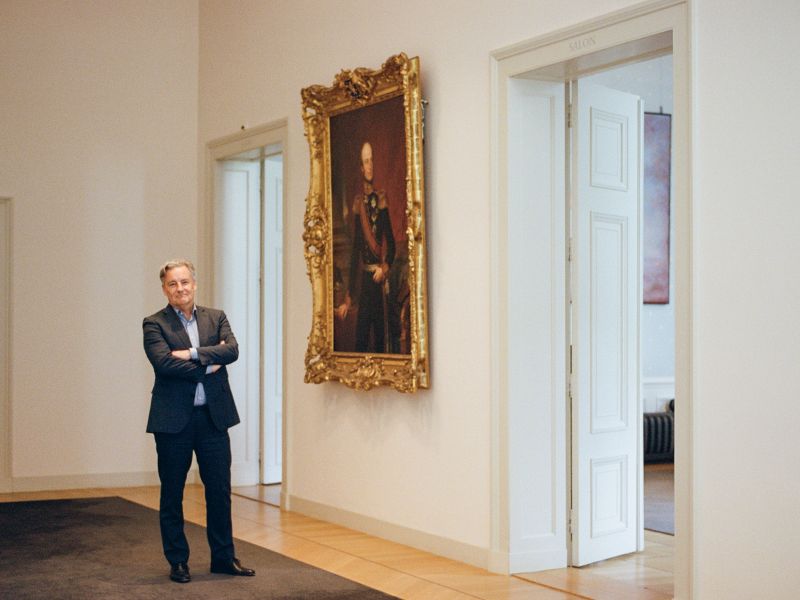
"Right now, nationally, two issues are dominating the news: nitrogen and asylum policy. These are also issues that come to us. The nitrogen crisis we are currently in is partly the result of a ruling by the Council of State in 2019. At the time, we overturned the approach and policy around nitrogen because it was not in line with European directives. To this day, there is no solution to the nitrogen crisis.
Asylum policy is a similar example. Consider, for example, the post-repatriation measure for refugees, a form of family reunification for people who ended up here in the Netherlands. The secretary of state wanted to restrict that right, but in that case, too, we concluded that it violated European law. That outcome, of course, has a huge impact on the life of a refugee who is allowed to bring their family to the Netherlands. So both examples actively impact the lives of people in the Netherlands."
The Rule of Law Weekwill take place from May 30 to June 3. On Saturday, June 3, several institutions will open their doors to the public to give guests a behind-the-scenes look at the world of the rule of law in the Netherlands: our system for an orderly and just society. To mark the occasion, Just Peace The Hague is organizing two guided toursthat will take you through the legal capital of the world. Together with an expert guide, you will explore how the rule of law is upheld in the Netherlands. Immerse yourself in stories and information about the democratic rule of law. Walk with us and take the opportunity to enter the most important institutions of the Netherlands and walk around The Hague!



